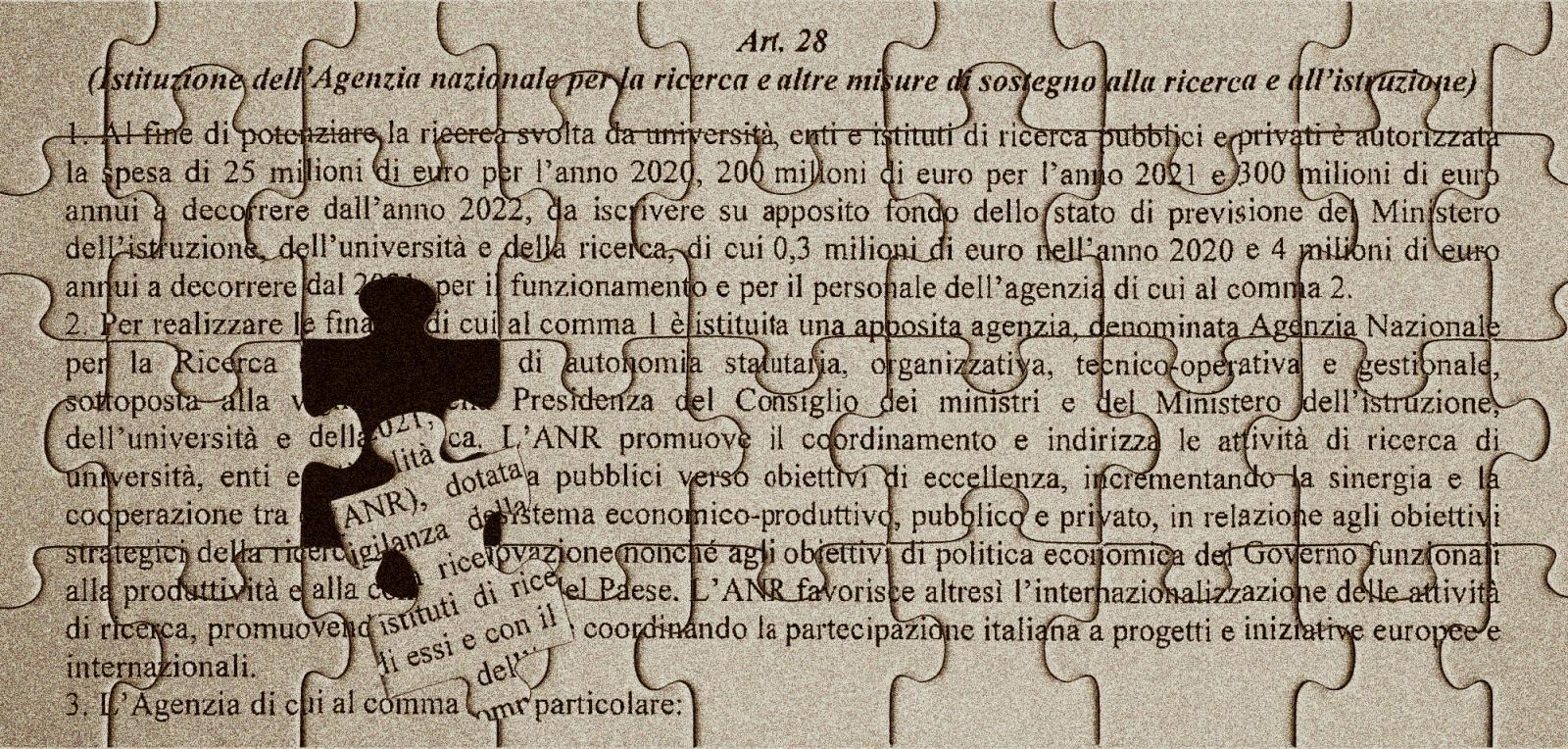
Gruppo 2003: It is important that the Research Agency is transparent and independent from politics, starting from the choice of its governing bodies.
The Italian Government has finally proposed a National Agency for Research, which has been advocated for many years by the Gruppo 2003, a charity of Italian highly Cited scientists focused on Italian research policy. For the moment, information on the characteristics of the Agency is contained in Article 28 of the Draft Budget Law for 2020, which will be discussed in the Chambers in the coming days.
Reading the draft, one gets the impression of a body with a strong political-ministerial prevalence, far from the idea of an independent agency, a technical body managed by experts chosen in a transparent way, which is responsible for the management of a substantial and qualified part of research funding.
Gruppo 2003 calls on the government and parliament to amend the article in the parts that distort the characteristics of independence of the agency.
On the subject, we believe that the most critical point of the proposal is the way in which the management bodies are recruited. The article of the law, in fact, correctly indicates the candidates as persons of high scientific qualification and with management experience in research bodies, but leaves the choice to the ministries, the Conference of Rectors and the Council of research bodies. The 2003 Group considers this practice unsuitable and proposes the establishment of a "Search Committee" made up of researchers and experts (including foreigners) able to identify the best candidates on the basis of scientific and managerial merits in a way that is completely independent of politics.
On the other hand, it is believed that the agency has the main task of providing competitive funding to deserving researchers, ensuring transparency, certainty and continuity to the scientific community. This can only be done if the government and the parliament have the courage to separate the technical function of the management of the calls for proposals (in the hands of the agency) from the political function of research planning, which identifies the research strands and funding priorities, which remains in the hands of the ministries.
Reading the article of the law, it is also clear that, when fully operational, the agency will have a budget of 200-300 million euros, the origin of which is unknown, but it is strongly hoped that they will be additional to the research budget, and not subtracted from other items. The 2003 Group, while recognising the delicate budgetary situation facing the government, considers that this budget is totally insufficient to provide the impetus needed by Italian research.
In this regard, it should be noted that the National Research Agency should manage all the funding provided on a competitive basis following calls for proposals now scattered under different ministries, each of which is managed according to different logics. The added value of an agency of this kind, in fact, is precisely to bring back to unity the funding of research according to international good practice.
In conclusion, Gruppo 2003 invites the government and parliament to amend the article of the Stability Law dedicated to the National Research Agency to make it a truly competent, transparent and independent body for funding scientific research.



